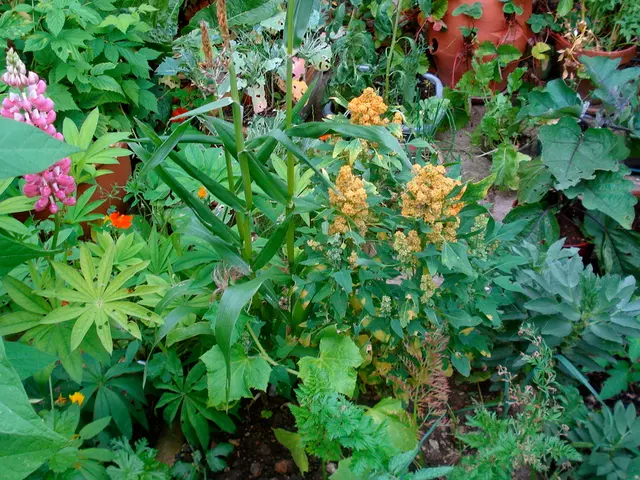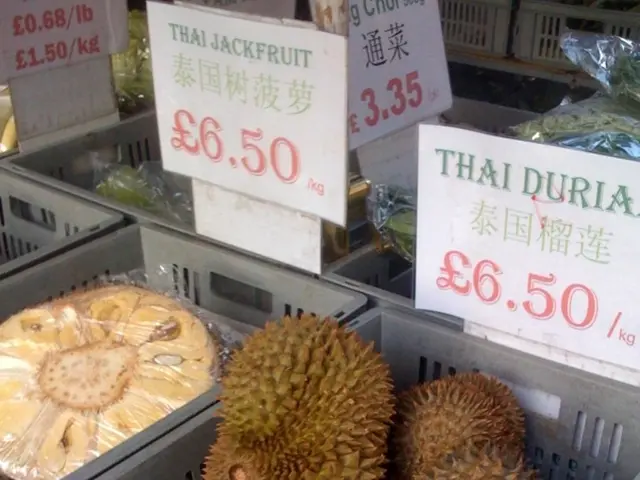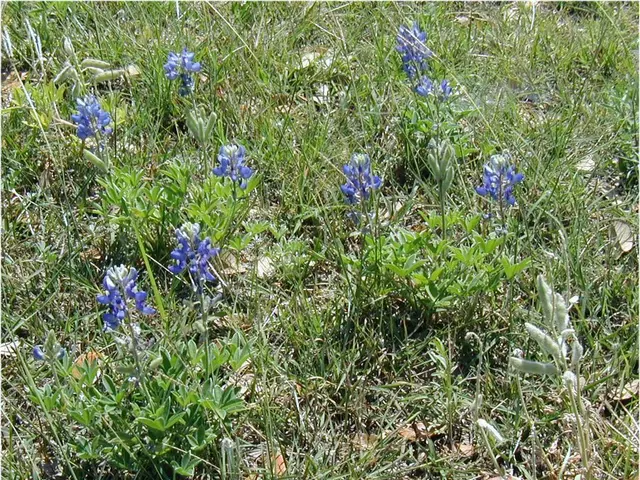It's Crucial to Regularly Sanitize Garden Pots Prior to Planting Fresh Vegetation
Whether you're a novice gardener or a seasoned plant parent, there comes a time when you'll need to upgrade your plants to a larger pot. You might keep the old container for future gardening use, like starting seeds or having a backup for other plants that need more space. However, you may not consider that these containers should be cleaned before repotting. While soil may seem harmless, it's a good idea to clean your ceramic or plastic pots to minimize pests and pathogens. Diseases can get transmitted in the soil, which can impact the health of your plants. "It's important to clean pots or containers before planting or reusing the same pot," advises Amy Hovis, Principal/Owner of Eden Garden Design and Owner of Barton Springs Nursery. Cleaning the pots helps prevent the spread of pests, diseases, or pathogens that may have built up on the surfaces.
Expert Insights
Amy Hovis, Principal/Owner of Eden Garden Design and Owner of Barton Springs Nursery, Austin, Texas
Parker Andes, Sr. Director of Horticulture at Biltmore, North Carolina
Why Clean A Pot Before Planting?
When growing indoor or outdoor plants, you want to provide them with the best environment to thrive. Given that you're investing time and money, it's wise to take an extra step to ensure better results. As Parker Andes, Sr. Director of Horticulture at Biltmore, North Carolina, says, "Since prevention is the best cure, a clean, sterile pot and fresh bagged soil is the best way to start out." There's always a risk of bacteria or pathogens being present in the pot, and reusing it without cleaning first could potentially spread to your plants. "Non-beneficial fungi, viruses, fungus gnats, and bacteria that cause root galls are all nature's way of keeping populations in check—of course, we don't want that to apply to our plants," explains Andes.
Does The Material Of The Container Matter?
The material of your pot plays a role in the cleaning products you can use. For instance, bleach should be avoided for steel or iron-coated pots as it will corrode them. Ceramic and terracotta pots are more porous, so they take longer to clean. "Ceramic and terracotta pots are more porous than plastic—it just takes longer to clean them up," says Andes.
How To Clean And Disinfect Gardening Containers
Cleaning your pots is simple and requires common household items. Hovis recommends using a vinegar solution for cleaning. "You can use a vinegar solution by mixing equal parts of water and white vinegar and submerge the pot in the solution, letting it soak for about 10 minutes. After soaking, you can scrub the pot with a brush or sponge to remove any remaining dirt or stains," she suggests. Make sure to rinse the containers thoroughly before drying them completely, as moisture can promote the growth of fungi or bacteria.
Andes suggests using a bleach solution for certain situations. "If you're growing a hobby greenhouse of orchids or starting your garden's seedlings in last year's plastic tray with the clear cover, then you should wash each pot, followed by disinfecting with a bleach solution (one part bleach to 9 parts water)," he suggests. However, if you're only cleaning a few pots, he recommends using a disinfectant wipe instead.
When it's only a few containers, Andes suggests hosing them off, brushing off any stuck-on soil, and hosing again, then letting them dry before wiping them with a disinfecting wipe.
What To Do If You've Reused Dirty Containers
If you've recently potted plants in unwashed containers, there's no need to freak out. While it's best to clean the containers before use, certain situations may not require immediate cleaning. For example, sowing seeds in disinfected containers will increase your chances of success since it's a sensitive and crucial time. Andes explains, "Unless you're starting seeds or reusing a pot that contained a diseased plant, probably nothing."
Even experts may not thoroughly clean before repotting, depending on the hardiness of the plant. "Now to be honest, if I was repotting a tough-to-kill snake plant (Sansevieria) or an overgrown Jade plant, I would probably brush the dirt off the pot, wipe it down with a rag, and then plant using fresh potting soil, without thinking about it again," says Andes.
- For those seeking gardening ideas, Southern Living has a wealth of Gardening Landscaping Ideas that include container gardening strategies to maximize space and plant health.
- If you're interested in Container Gardening, expert advice suggests cleaning your pots thoroughly before reuse, as advised by Amy Hovis, Principal/Owner of Eden Garden Design and Owner of Barton Springs Nursery, to minimize the risk of spreading pests and diseases.







